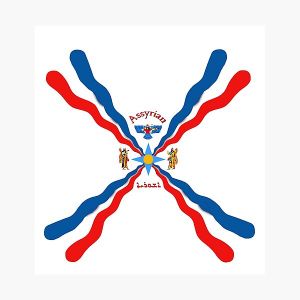Language/Assyrian-neo-aramaic/Vocabulary/Days-of-the-week
Assyrian Neo-Aramaic is a modern Aramaic language spoken by the Assyrian people, predominantly found in Iraq, Iran, Syria, and Turkey. This article explores the vocabulary of the days of the week in Assyrian Neo-Aramaic, along with examples of their usage in sentences. At the end of this article, you will find a short quiz to test your understanding of the days of the week in Assyrian Neo-Aramaic.
Days of the Week in Assyrian Neo-Aramaic[edit | edit source]
- Sunday - Khosheba (Khshaaba): The first day of the week, often considered a day of rest and religious observance.
- Monday - Trosheba (Treethshaaba): The second day of the week, symbolizing the start of the working week.
- Tuesday - Tlosheba (Tlithshaaba): The third day of the week, associated with productivity and continuation of work.
- Wednesday - Arbosheba (Arbashaaba): The fourth day of the week, often seen as the middle of the working week.
- Thursday - Khamshosheba (Khamshaaba): The fifth day, typically marking the approach of the weekend.
- Friday - Rota (Ptha): The sixth day, significant for preparation for the Sabbath in many Christian traditions.
- Saturday - Shabta (Shabtaa): The seventh day, traditionally observed as the Sabbath, a day of rest and religious activities.
Example Sentences[edit | edit source]
1. Khosheba: "B'Khosheba, nasha qamira b'nakhoshuta." - "On Sunday, we rest and relax."
2. Trosheba: "B'Trosheba, nasha nakhla b'khzeeta." - "On Monday, we return to work."
3. Tlosheba: "B'Tlosheba, ana nasha leqta d'khoobta." - "On Tuesday, we have a meeting."
4. Arbosheba: "B'Arbosheba, nasha npharta b'nakhdeeta." - "On Wednesday, we divide the week's tasks."
5. Khamshosheba: "B'Khamshosheba, nasha ngarwa shapa d'sapra." - "On Thursday, we prepare for the weekend."
6. Rota: "B'Rota, nasha nkhazra b'eeda." - "On Friday, we get ready for church."
7. Shabta: "B'Shabta, nasha nshaba b'bayta." - "On Saturday, we stay at home."
Quiz[edit | edit source]
1. How do you say "Tuesday" in Assyrian Neo-Aramaic?
2. What is the Assyrian Neo-Aramaic word for "Friday"?
3. Translate into English: "B'Arbosheba, nasha npharta b'nakhdeeta."
4. Which day is traditionally observed as the Sabbath in Assyrian Neo-Aramaic?
Answers[edit | edit source]
1. Tlosheba (Tlithshaaba)
2. Rota (Ptha)
3. "On Wednesday, we divide the week's tasks."
4. Saturday (Shabta)
Conclusion[edit | edit source]
Understanding the days of the week in Assyrian Neo-Aramaic not only enhances language skills but also provides insights into the cultural practices of the Assyrian community.
Other Lessons[edit | edit source]
- Drinks
- Clothes
- Count to 10
- Fruits
- Education
- Months of the year
- Greetings
- Time
- Feelings and Emotions
- Animals


